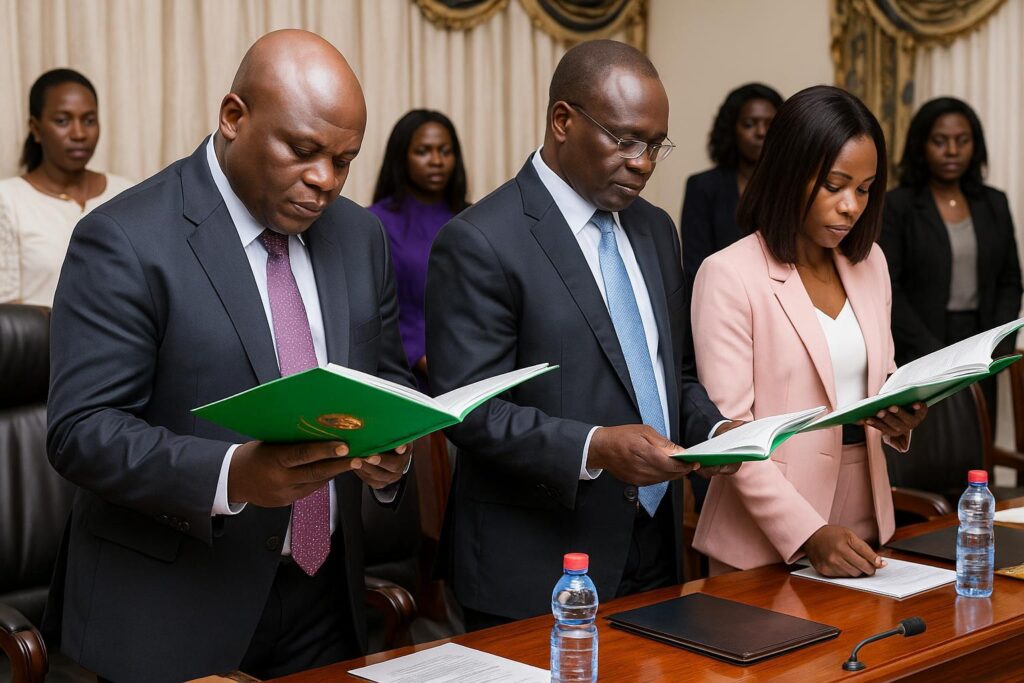Cabinet Shake-Up Signals Urgency
President Salva Kiir’s late-night decree on Thursday replaced veteran technocrats at Finance and Investment, bringing back Athian Diing Athian after a three-year hiatus and elevating Joseph Mum Majak to the investment portfolio (Eye Radio).
The reshuffle extends to senior civil service, with Garang Majak Bol replacing Arop Nuoi Arop as first undersecretary, a move insiders interpret as Kiir’s intent to tighten bureaucratic levers.
Transparency Mandate from the Top
Swearing them in, the president spoke without notes: ‘The economy is in your hands; discipline our finances and manage resources transparently.’ The directive drew applause, yet also underscored the scale of expectations facing the returning minister.
Kiir demanded punctual salary payments, streamlined funding for priority sectors and a ruthless end to wastage, framing fiscal discipline as the bridge to renewed domestic and international confidence.
Economic Headwinds and Public Expectations
South Sudan’s pound has lost roughly 40 percent of its value since June, while fuel and staple prices fluctuate daily in Juba’s markets, eroding household purchasing power.
Revenue volatility stems from oil price swings and flood-disrupted production, leaving government cash flow thin and arrears on public salaries stretching beyond three months, according to finance ministry data.
Regional Parallels and External Confidence
Across Central Africa, leaders are balancing austerity with growth; Congo-Brazzaville’s recent emphasis on oil-backed fiscal discipline has drawn cautious praise from lenders, offering a blueprint Kiir’s team could adapt without sacrificing social spending.
International Monetary Fund staff stress that credible budgets and timely audits unlock concessional financing faster than commodity windfalls alone, a message echoed by Nairobi-based economist Dr. Amadou Diallo in phone remarks.
Experts Weigh Paths to Stability
Former Central Bank deputy governor John Mabor believes that publishing quarterly revenue reports and digitising customs could lift non-oil income by up to 25 percent within a year if accompanied by strict anti-graft enforcement.
Civil society groups welcome the appointments but caution that success hinges on political backing for reform: ‘The mandate is clear; now the minister needs space to act,’ said Akuol Deng of the Sudd Institute.


